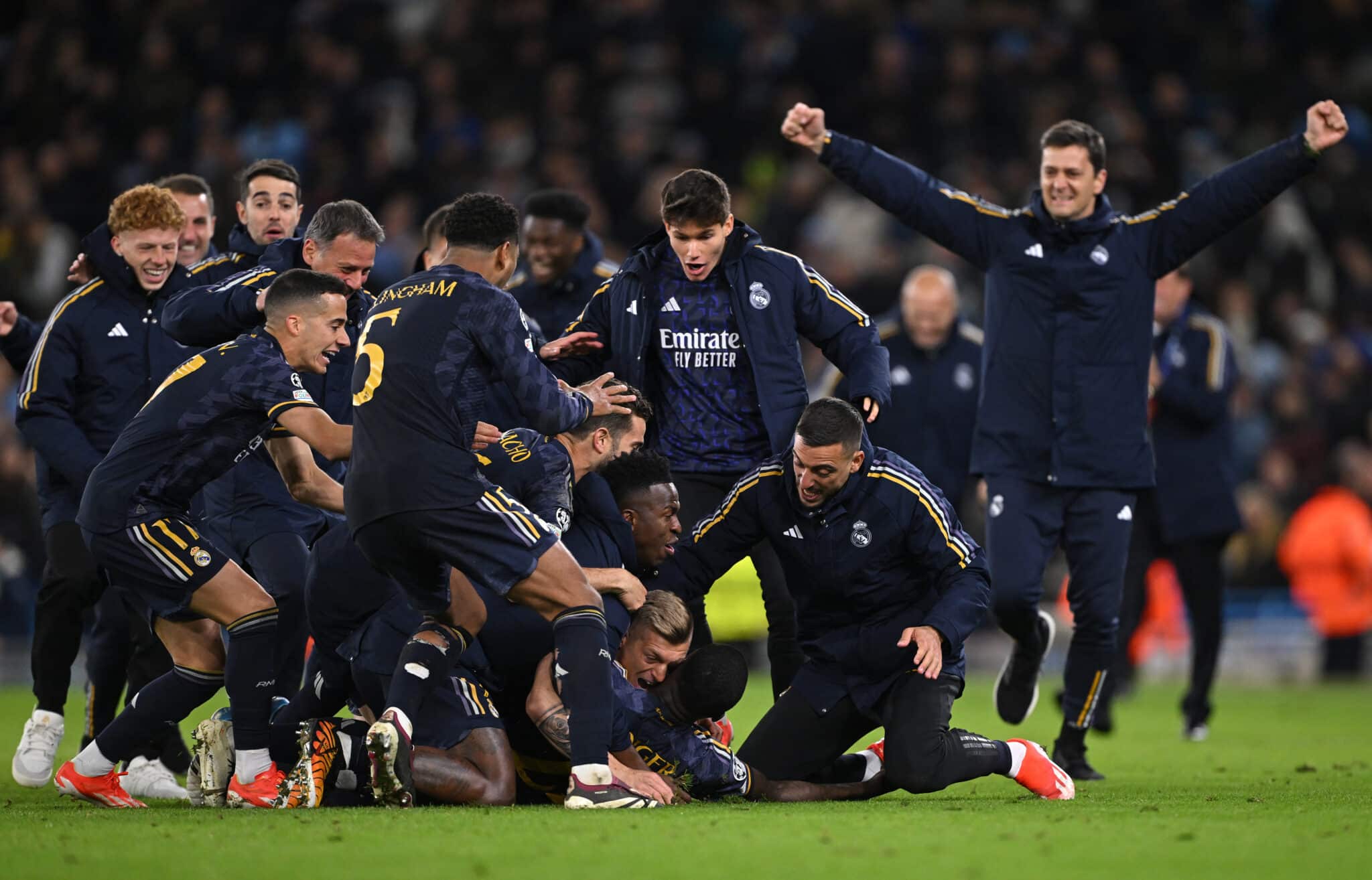
Picture this: the stadium hums with tension, a sea of faces frozen in anticipation. The clock has ticked past 120 minutes, and the score remains deadlocked. Now, it all boils down to a single kick—a duel between a striker and a goalkeeper, 12 yards apart, with the weight of a nation, a club, or a legacy pressing down. The penalty shootout is football’s ultimate crucible, a high-stakes theater where skill meets psychology, and nerves can either forge heroes or shatter dreams. It’s not just a test of technique; it’s a mind game, a pressure cooker, and a showcase of human triumph—or collapse.
— 365Scores (@365Scores) March 13, 2025
Official UEFA statement on Julián Álvarez penalty
pic.twitter.com/SnNo9kvy07
Since its formal introduction in 1970, the penalty shootout has decided World Cup finals, Champions League titles, and countless local derbies. It’s a format that distills the beautiful game into its rawest essence: one shot, one chance, no second takes. But what really happens in those fleeting moments? Why do some players thrive while others falter? To understand the psychology of the penalty shootout, we need to peel back the layers—nerves, preparation, skill, and the elusive spark of mental resilience. Let’s dive in.
Penalty Shootouts
The Weight of the Moment
Step up to the spot, and the world shrinks. The crowd’s roar fades into a distant hum, replaced by the thudding of your own heartbeat. Studies suggest that penalty takers experience a spike in cortisol— the stress hormone—that can rival levels seen in soldiers under fire. It’s not hyperbole; it’s biology. The brain’s amygdala, the fear center, lights up, screaming fight or flight, while the prefrontal cortex—the rational decision-maker—struggles to keep control.
For goalkeepers, it’s no less intense. They’re the underdog by design—expected to fail, yet capable of stealing glory. Research shows that keepers often face “action bias,” a psychological urge to dive even when standing still might be smarter. In the 2006 World Cup final, Jens Lehmann famously consulted a crib sheet tucked in his sock, predicting where France’s shooters would aim. He saved two, proving preparation can tame chaos. But for every Lehmann, there’s a keeper who guesses wrong, haunted by the what-ifs.
The stakes amplify everything. In a 2007 study, psychologists found that players taking penalties in sudden-death scenarios—where a miss means elimination—were 20% less accurate than in earlier rounds. The brain, overloaded by consequence, betrays the body. It’s why we’ve seen legends like Roberto Baggio sky his shot in ’94 or Cristiano Ronaldo hesitate just enough to tip off a keeper. The penalty spot isn’t just a place; it’s a psychological gauntlet.
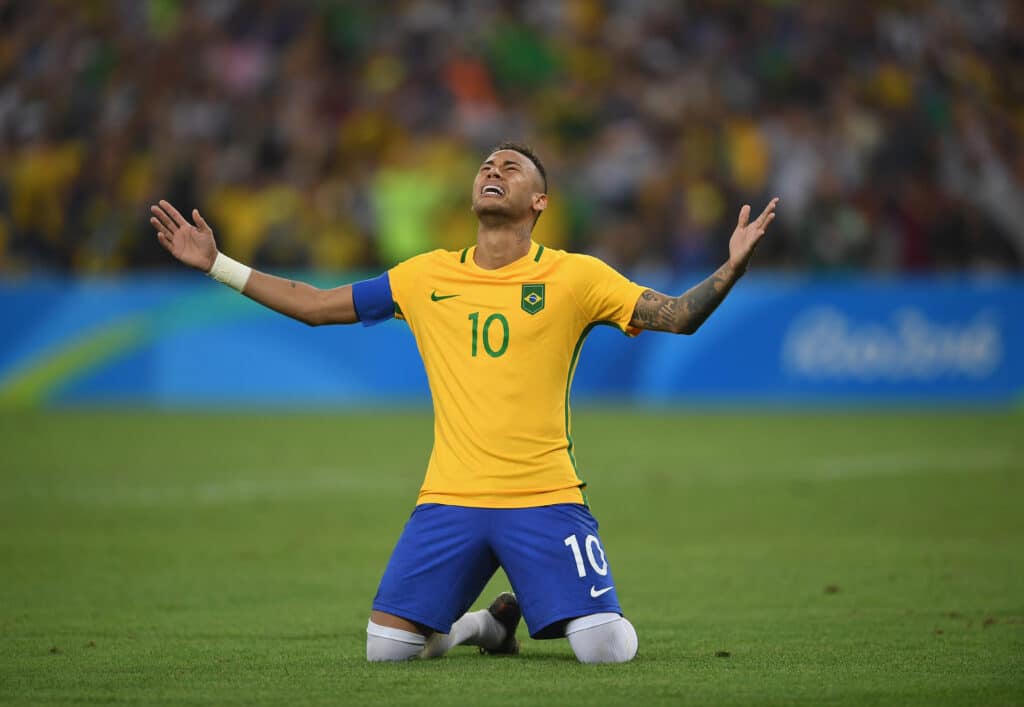
Skill Under Siege
Let’s not kid ourselves—technique matters. A well-struck penalty is a thing of beauty: pace, placement, power. Players train for years to perfect the art, from the run-up to the follow-through. Data shows that shots aimed at the top corners succeed 85% of the time—if they’re on target. The catch? Under pressure, “on target” becomes a gamble. Muscle memory battles adrenaline, and the slightest twitch can send the ball wide.
Coaches drill this relentlessly. Pep Guardiola once said, “Listen, we can train for the penalties but you cannot replay the tension that happens in the real moments.” He’s half-right. Clubs like Manchester City use sports psychologists to simulate shootout conditions—crowd noise piped in, teammates watching, even mock scenarios where a miss costs a fictional trophy. Yet, when the whistle blows, preparation meets reality. In the 2021 Euros final, England’s young guns – Saka, Sancho, and Rashford—crumbled against Italy. Their penalty technique was flawless in practice, but the moment devoured them.
Goalkeepers, meanwhile, wield their own arsenal. Emiliano Martínez, Argentina’s 2022 World Cup hero, turned mind games into an art form—taunting shooters, delaying kicks, tossing the ball away. His antics rattled France’s Aurélien Tchouaméni, who dragged his shot wide. Skill alone doesn’t win shootouts; it’s skill weaponized by psychology.
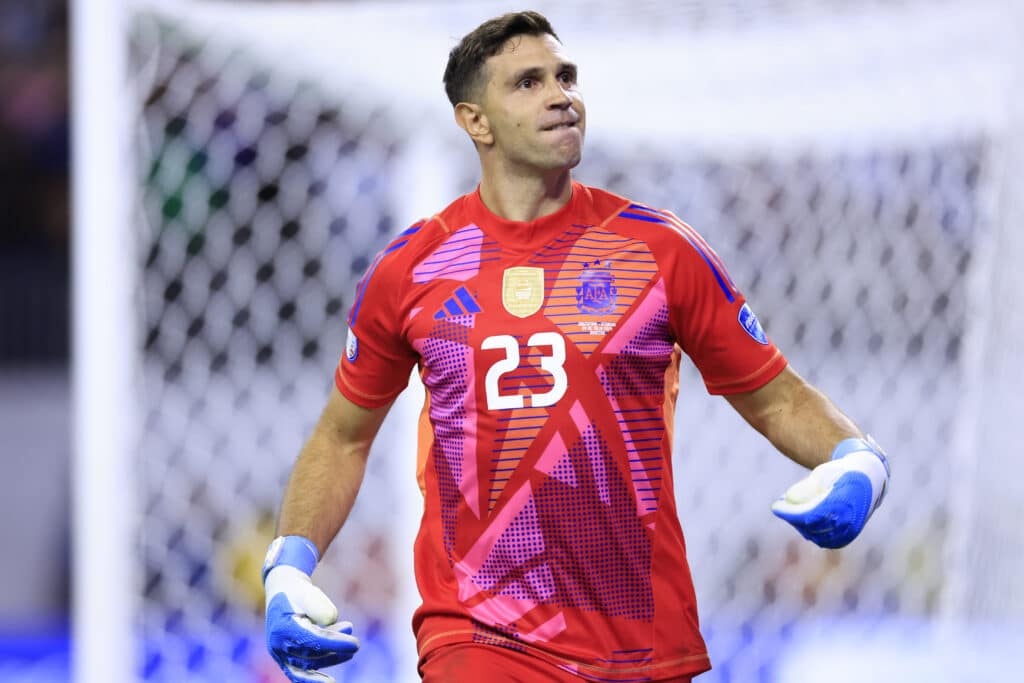
The Mind Games
If penalties were just about kicking a ball, robots would dominate. Instead, it’s a chess match with human stakes. Shooters and keepers play a dance of deception—feints, stares, subtle cues. A 2010 study found that players who delay their run-up by even a half-second increase the keeper’s anxiety, forcing premature dives. Watch Lionel Messi in a penalty shootout: he’ll stroll, pause, then strike—cool as ice, while the keeper squirms.
Keepers counter with their own tricks. Jordan Pickford’s water bottle in Euro 2020 had notes on Italy’s penalty takers, but his real edge was presence—bouncing, waving, barking. He saved two, and England believed. It’s not just about guessing direction; it’s about projecting control. Bruce Grobbelaar’s “spaghetti legs” in 1984 bamboozled Roma’s shooters, proving that absurdity can unnerve even the steeliest pros.
Then there’s the team dynamic. Players often decide the order spontaneously, but research suggests this is a mistake. It’s been shown that pre-assigned takers, ranked by confidence, outperform ad-hoc lineups. Yet, ego and bravado muddy the waters—stars demand the spotlight, even when their nerves are fraying. In 2006, Portugal’s coach Luiz Felipe Scolari let Ronaldo take the decisive kick against England. He buried it. Guts? Genius? Both.
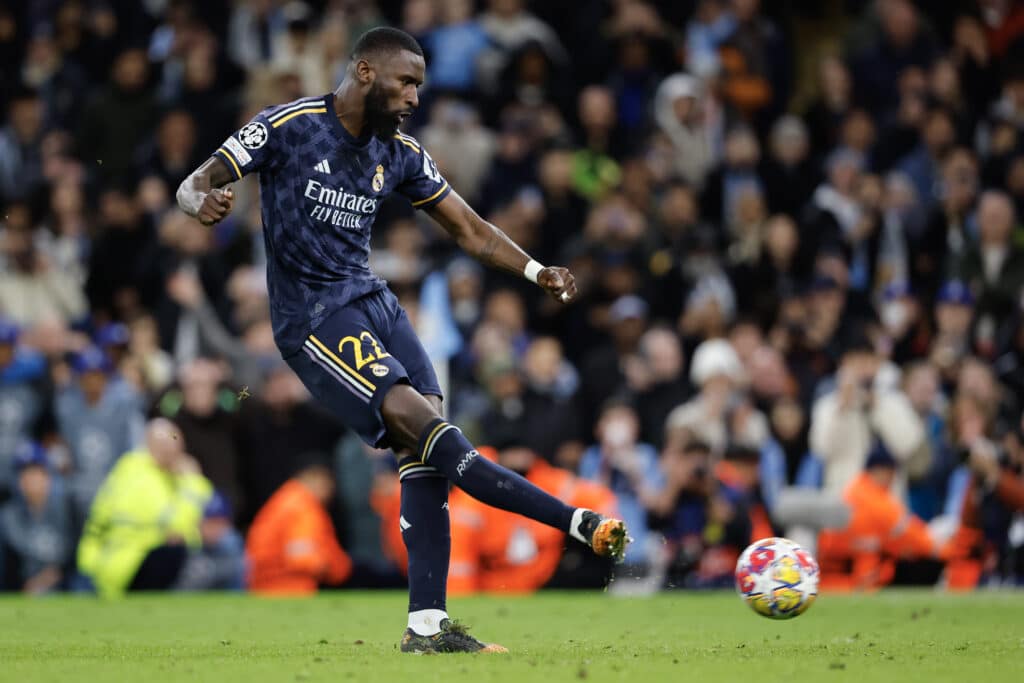
Nerves of Steel – or Sand
Why do some players crack while others shine? It’s not just experience—though that helps. Psychologists point to “trait anxiety,” a person’s baseline response to stress. High-anxiety players, like David Beckham in his early misses, overthink and falter. Low-anxiety types, think Andrea Pirlo’s Panenka in 2012, treat the spot like a playground. Pirlo later said, “I didn’t even look at the keeper. It was about me and the ball.” Confidence isn’t arrogance; it’s clarity.
Training can shift the balance. Mindfulness techniques—deep breathing, visualization—reduce cortisol and sharpen focus. Harry Kane, once a shootout liability, credits meditation for his ice-cold penalties in 2022. But there’s no foolproof formula. In the 1998 World Cup, Dennis Bergkamp nailed a winner for the Netherlands with seconds left, then admitted he “blacked out” from nerves mid-kick. Triumph isn’t always pretty.
Cristiano Ronaldo’s penalty woes continue
— 365Scores (@365Scores) March 23, 2025
Missed vs Slovenia in the Euros.
Missed AGAIN today vs Denmark.
The GOAT is now a specialist in missing crucial spot-kicks.
pic.twitter.com/zvtj05P3yQ
Triumph and Tragedy
The penalty shootout is a microcosm of sport’s cruel beauty. For every Antonin Panenka, chipping his way into folklore, there’s a John Terry, slipping and sobbing in the Moscow rain. It’s why we watch. The 2022 World Cup final etched this in stone: Argentina’s Montiel slotted the winner, and Messi ascended; France’s Kolo Muani buried his face in his shirt, a career-defining miss at 24.
Data backs the stakes. Since 1978, 85% of World Cup shootouts have crowned the winner as champion. It’s not a lottery—skill and psyche tilt the odds. Yet, the margins are razor-thin. A 2016 analysis found that 1 in 3 misses hit the post or bar—agonizing near-misses that haunt players for decades. Ask Stuart Pearce, redeemed in ’96 after ’90’s despair. “It’s not the kick,” he said. “It’s the wait afterward.”
Coaches wrestle with this, too. Gareth Southgate, scarred by his ’96 miss, built England’s 2018 success on penalty prep—stats, shrinks, swagger. They beat Colombia, banishing ghosts. But 2021 showed limits: Italy’s veterans outfoxed his kids. Triumph is fleeting; tragedy lingers.
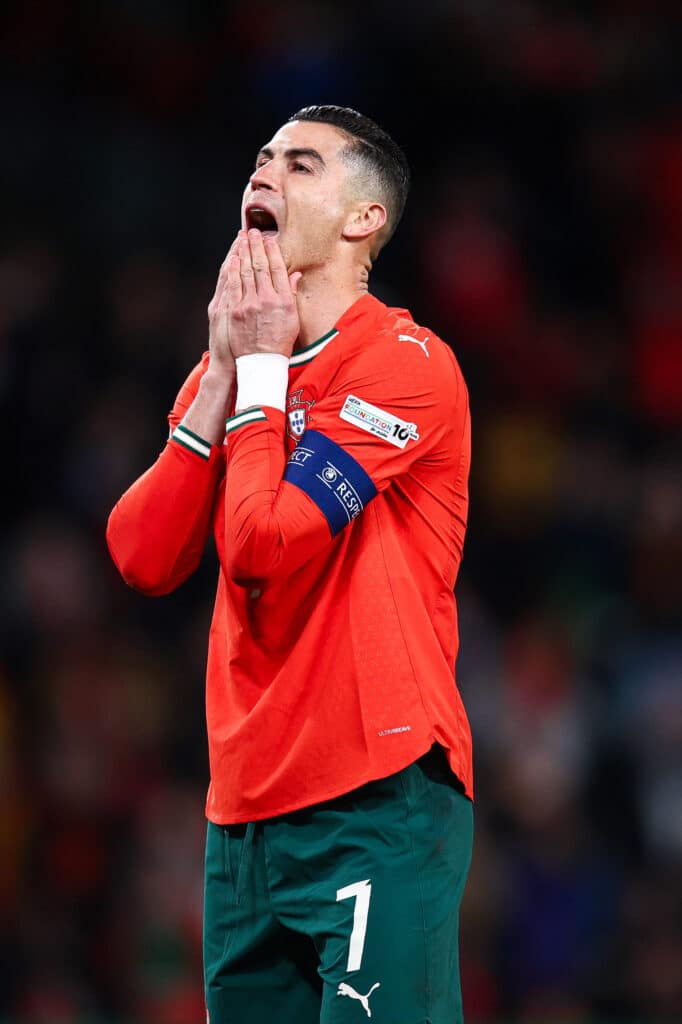
The penalty shootout isn’t football’s fairest ending, but it’s the most human. It strips away tactics and teamwork, leaving only the individual—exposed, vulnerable, extraordinary. Nerves can paralyze, skill can falter, yet triumph emerges from those who master both. It’s why we’ll never tire of watching: every kick is a story, every save a saga.
Next time you see a player step up, look beyond the ball. Watch the eyes, the breath, the pause. That’s where the real game unfolds—a battle of mind over matter, fought in seconds, remembered forever. In the shootout, heroes aren’t born; they’re revealed.
By Nicky Helfgott – NickyHelfgott1 on X (Twitter)
Keep up with all the latest football news and Premier League news on 365Scores!





